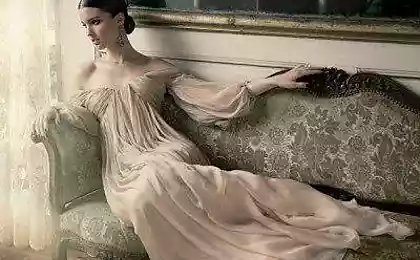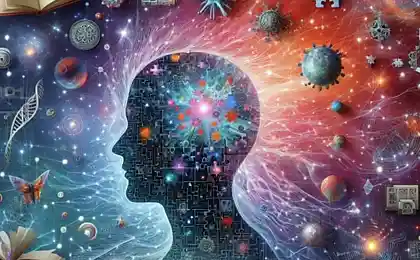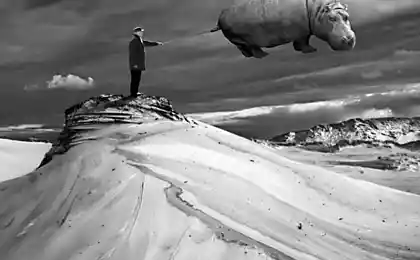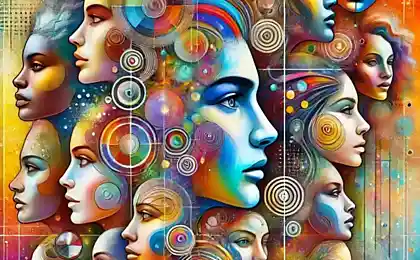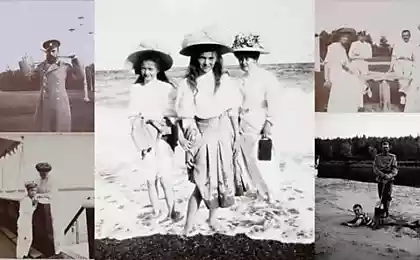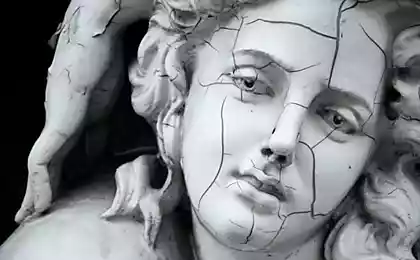3405
Great people
Propose to recall those great men who really managed to change mir.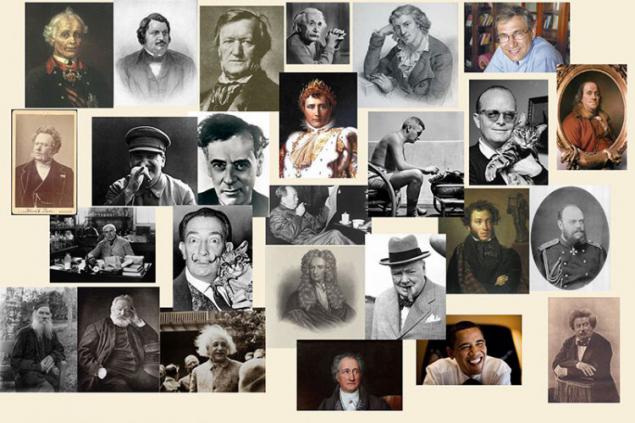
Fyodor Dostoevsky (1821- 1881)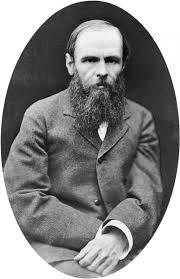
In spite of the wide popularity in Russia Fyodor Dostoyevsky, worldwide recognition and interest in his work came after his death. All noted his deep psychology, passion in the image "humiliated and insulted". The German philosopher Friedrich Nietzsche wrote that Dostoevsky was the only psychologist from whom he learned something.
Karl Marx (1818-1883)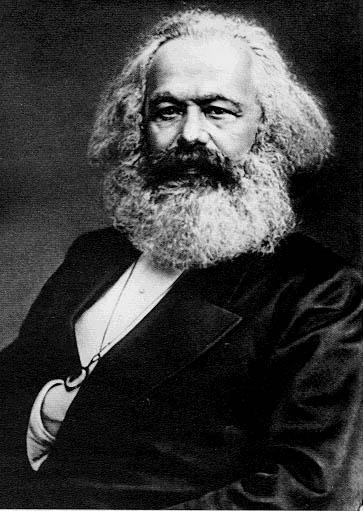
At the end of XIX beginning of the XX century the name of Karl Marx became a symbol of the struggle for the emancipation of the working class. He developed the principles of dialectical and materialist conception of history, spoke about the need to eliminate private property, put forward the thesis of the inevitability of the collapse of capitalism and the victory of communism. His main work - "Capital" - and the theory of surplus value affected the internal political life of many countries in Europe and the world.
Nikolay Pirogov (1810-1881)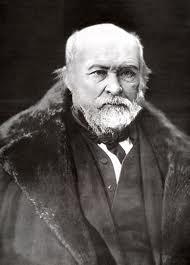
Nikolay Pirogov hours worked in the anatomical theater, cut soft tissue examined diseased organs, bones sawed, sought to replace the damaged joints. Anatomy was his practical school, which laid the foundations of his future successful surgical operation. Pirogov first proposed the idea of plastic surgery, anesthesia applied in military surgery, for the first time put a plaster cast in the field, suggested the existence of pathogens causing festering wounds. His works, various medical atlases advanced Russian surgery on one of the first places in the world.
Charles Robert Darwin (1809-1882)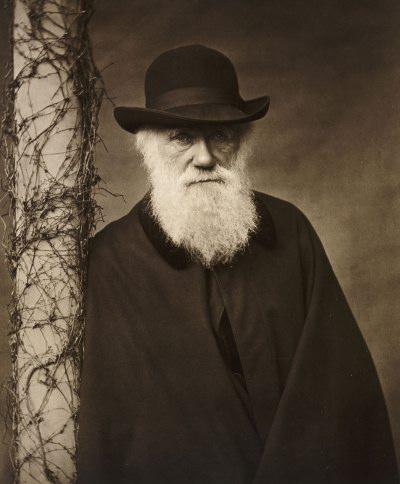
The famous English explorer, naturalist, explorer Charles Darwin one of the first proposed the theory of evolution of living organisms. He claimed that all living beings have a common ancestor from which they inherit certain properties, changing in the development process. In 1859 he published the book "The Origin of Species", where many examples showed that the driving force of evolution is natural selection and variability. His ideas and discoveries in many ways served as the foundation of the modern theory of evolution, but not all recognize its fundamental.
Justus von Liebig (1803-1873)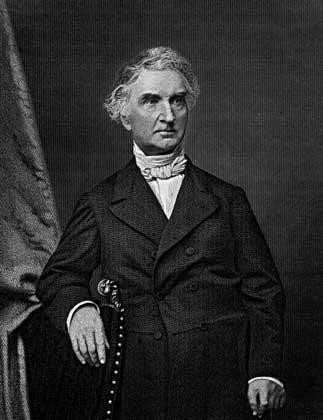
Prominent German Professor of Organic Chemistry, Justus Liebig his whole life to explore ways of plant nutrition, address issues of rational use of fertilizers. He has done a lot to improve crop yields. Russia for help her in raising agricultural scientist awarded two Orders of St. Anne's, England made him an honorary citizen in Germany, he received the title of baron. He is credited with the creation of food concentrates. He has developed a technology to produce beef extract, which in our time is called "bouillon cube." German Chemical Society erected a monument to him in Munich.
Alexander Dumas (1802-1870)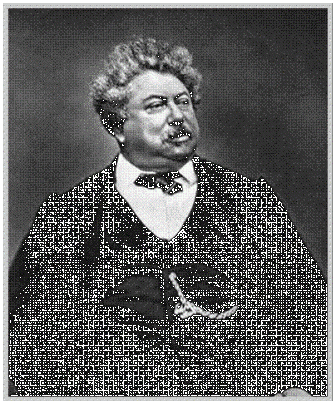
Alexandre Dumas called writer-ready writer, for his life, he wrote 647 works on a variety of topics. He was interested in everything: history, crime, famous people, and even recipes for foreign cuisine. He tried to be in the thick of the most important events, traveled to different countries in Europe, came out with the rebels in the streets of Paris, where he was nearly killed. Returning home, he sat down at the table and wrote and wrote, forgetting everything. His adventurous novels have been translated into many languages, they formed the basis for numerous theatrical productions, feature films. Interest in his work has not died away in the XXI century.
Alexander Pushkin (1799-1837)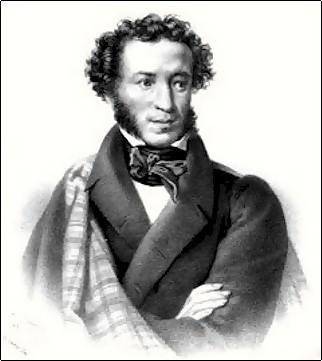
Time permanently removes us from Pushkin, poet, playwright, novelist, but his creative genius of this emerges more clearly. His poems, poems and stories showed different aspects of Russian reality, social life and country life, they reflected restless soul of a poet, deep feelings and emotions. His poetry and prose have been enthusiastically received by the readers of the XIX century. It was then that create an aura of his greatness, he was seen as the founder of Russian literature, the creator of modern literary language. It is no coincidence the time in which he lived, called "Pushkin era».
Simon Bolivar (1783-1830)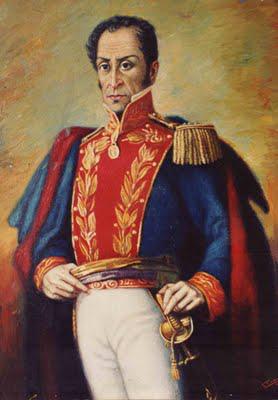
An example of the United States of America, freed from the domination of England in 1783, was contagious. The young Spaniard Simon Bolivar, who in 1805 visited the United States, decided to participate in the liberation from Spanish rule in South America. He led the liberation movement in New Granada - Spanish Viceroyalty in South America, which includes the territory of present-day Colombia and Panama. In 1813 he was proclaimed Liberator of Venezuela, and in 1825 he became head formed on the territory of the Republic of Upper Peru, called by its name Bolivia.
Napoleon Bonaparte (1769-1821)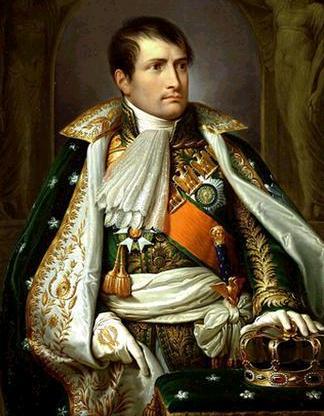
Initiated in 1805 by Napoleon I aggressive war in Europe very quickly turned France into a major power on the continent. Among the west remained unconquered Albion, in the east - Russia. But the trip to the East in 1812 ended the French Emperor and his army sad. He had to flee. He suffered a defeat in the Battle of Leipzig in 1814, and was forced to surrender after the Allied troops. French hegemony in Europe was over, but the name remained in the history of Napoleon. It is called the military and state genius, his battle entered the military manuals. Napoleon's right - the "Code Napoleon" became the basis of civil standards of Western democracy.
Thomas Robert Malthus (1766-1834)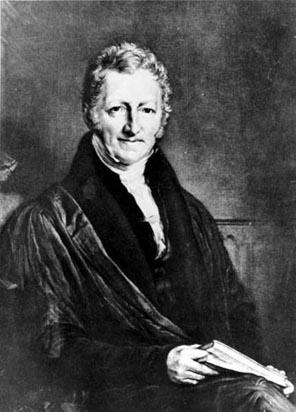
His scandalous book "An Essay on the Principle of Population" Thomas Robert Malthus, an English clergyman and scientist and economist, published anonymously in 1798. In the book, he pointed to the dangers facing mankind - overcrowding and lack of food. Top barriers to curb the growth of the population - poor harvests, wars, epidemics. These submission, oddly enough, had a positive impact on the development of biology, forced European governments to pay attention to the problems of demography.
Martin Luther King Jr. (1929-1968)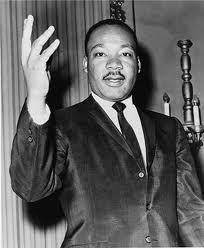
The first fighter for civil disposition of African Americans in the United States, Baptist preacher and a prominent speaker Martin Luther King urged his supporters: should resist racism, but not by force. No bloodshed! He railed against US aggression and colonial war in Vietnam. For success in the democratization of American society in 1964, Martin King was awarded the Nobel Peace Prize. He had a dream - to destroy the racial prejudice that white and black could coexist in America as equals.
Sergei Korolev (1906-1966)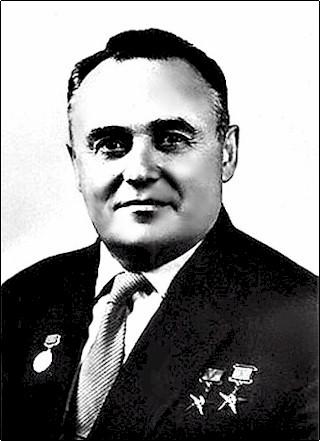
Sergei Korolev was an outstanding engineer-designer, wanted to conquer space. He made an enormous contribution to the organization of production space rocketry and missile weapons in the Soviet Union. He was the first in the world launched to Earth orbit satellites, scientific stations, spaceships. Posts about this shocked the world. He wanted to explore the Universe using automatic machines and began to prepare the trip to Mars, but did not have time to implement his plan.
Deng Xiaoping (1904-1996)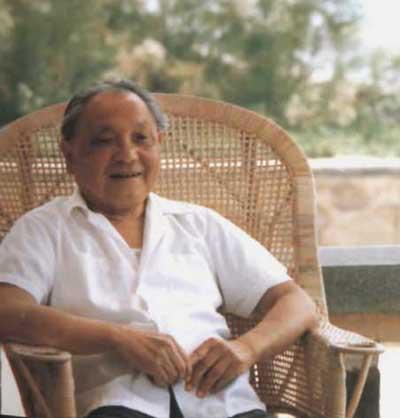
Officially, Deng Xiaoping - Chinese revolutionary and politician, informally - the head of the country. From the late 1970s to the early 1990s, he proclaimed a policy of economic reform and the construction of socialism with "Chinese characteristics". When it became Celestial strong, developed country. He put forward the idea of the unification of China and Taiwan on the principle of "one country - two systems". Throughout the world, he is recognized as an outstanding Chinese reformers of XX century.
Robert Oppenheimer (1904-1967)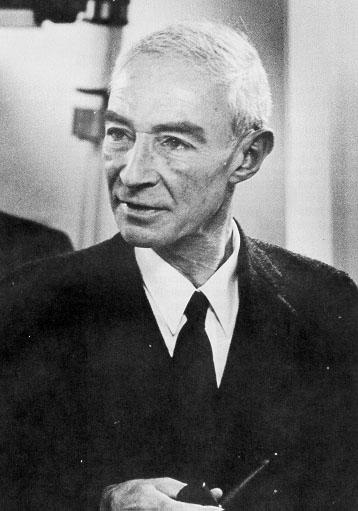
Destroyer of Worlds. So called himself Robert Oppenheimer - American physicist, creator of the atomic bomb, when I learned about the terrible loss of life and devastation caused by the US atomic bomb dropped over Hiroshima on August 6, 1945. He was a conscientious man, and further urged scientists in the world not to create weapons of enormous destructive power. In the history of science as he entered * the father of the atomic bomb "and as the discoverer of black holes in the universe.
Alfred Hitchcock (1899-1980)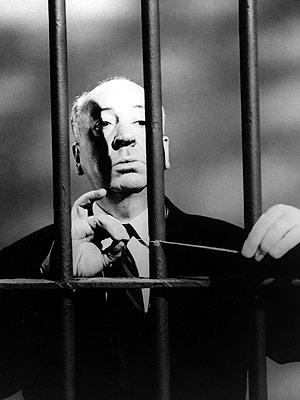
In the history of world cinema, Alfred Hitchcock, the famous English and American film director, remained as an unsurpassed master of horror films. He created action-packed pictures with an atmosphere of anxiety, suspense, with gloomy humor. They were called thrillers or suspense. Hitchcock skillfully worked on the psyche of the audience, subjecting them. Altogether he produced 55 feature films, many of which have become classics of world cinema. He was repeatedly awarded the "Oscar" of the American Academy.
Mao Zedong (1893-1976)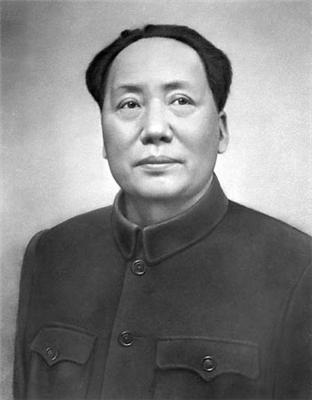
The author of "Great Leap Forward", the creator of the "cultural revolution", Mao Zedong, along with the classics of Marx, Engels and Lenin considered one of the pillars of Marxist political thought. Merciless to enemies, dedication and perseverance featured one of the founders of the Communist Party of China and the creator of the People's Republic. China has spent a lot of years to overcome the negative effects of his reign, to embark on the path of civilized development.
Charles Spencer (Charlie) Chaplin (1889-1977)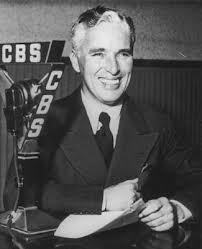
Charlie Chaplin became famous in the silent film era, when he created the image of an intellectual-tramp Charlie, a shy, thieving man who dared speak out against injustice. And even when in 1927 started shooting sound films, Chaplin a decade remained true to his image remains silent. During his life, he played 80 roles and has become known worldwide as a comedian, but he was also a writer, director, producer and composer, even his own films. Chaplin was awarded numerous international prizes, but his main award - the love of the public.
Adolf Hitler (1889 - 1945)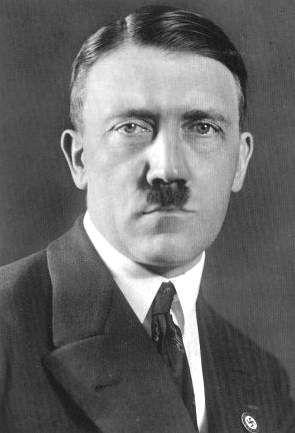
Historians have found an explanation for the phenomenon of the impact of Hitler in 1933 to 66 million Germans, obedient, but they found no justification for his acts, which he plunged Europe into the abyss of brutal war and has brought untold suffering to the peoples. The number of crimes he committed in the name of the superiority of one nation over others, in the name of the conquest of living space is enormous. In the story he was kak immensely exalted person who has lost all sense of reality and created great distress.
Charles Edouard Jeanneret-Gris (Le Korbyuze) (1887-1965)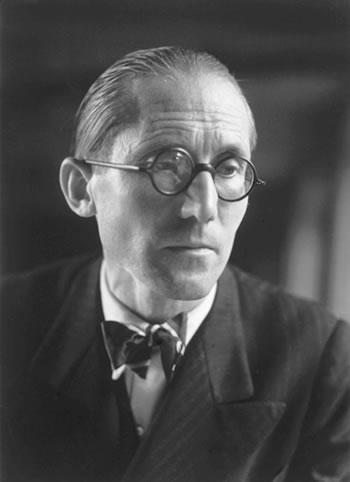
In Moscow, on Butcher Street, 39, in 1930, was built the original building with large glazed windows. It was intended for Centrosoyuz. It was designed by the French architect of Swiss origin Charles Le Corbusier - one of the most famous architects of the XX century. Supporter functional style, the founder of modernism, he worked in various countries, including Switzerland, France, USA, Argentina, Japan, Russia. He was the author of the so-called free-form architecture, proposes to build a no-frills, simple, sublime and with an abundance of light.
Coco Chanel (Gabrielle Bonheur real name) (1883-1971)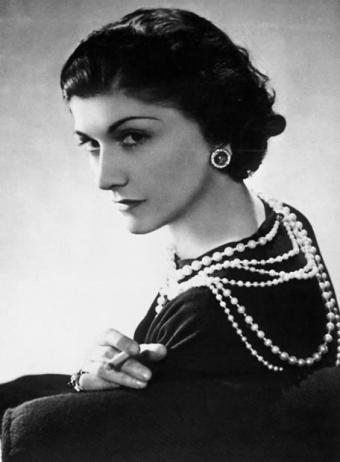
Coco Chanel loved black and encouraged its to clients wearing little black form-fitting dress. For black dress well suited black handbag, elegant black hat and black sunglasses. "Blackened" image was so prevalent among the fashionistas of the 1920s that this popular clothing Coco compared with US T-model Ford, which produced cars off the assembly line in black only.
Franklin Delano Roosevelt (1882-1945)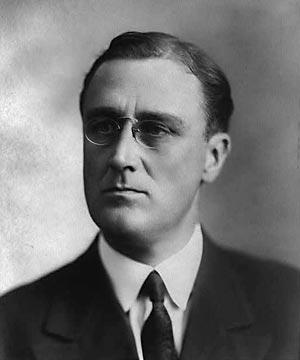
During the Great Depression in 1933 in the United States was elected the 32nd President Franklin D. Roosevelt. He promised to lead the country out of a deep crisis. In the same year the president has established diplomatic relations with the Soviet Union. Since the beginning of World War II, he supported the United Kingdom, France and the Soviet Union in the fight against Nazi Germany. He put forward the idea of creating the United Nations. He had big plans in international politics, but to fulfill them to the end he failed.
Pablo Ruiz Picasso (1881-1973)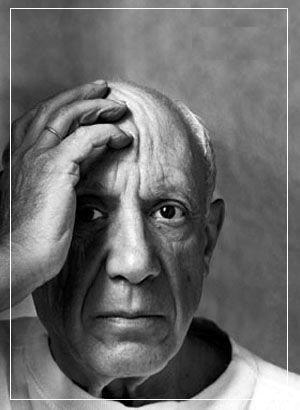
Hispanic origin, Pablo Picasso - painter, graphic artist, sculptor and designer - his unusual work initially just hit the audience, and then had an enormous impact on the entire art world of the XX century. He was the founder of Cubism, depicting man as a number of superimposed planes. This ensures, as they say, ugly similarity. And it admires. He said that shows the world is not the way it sees, and what is. It is much more valuable, it is the highest creativity. His work is recognized as the most popular and were the most expensive in the world.
Alexander Fleming (1881-1955)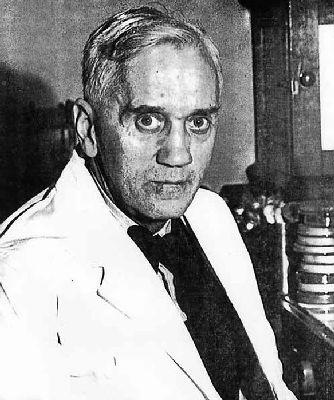
Alexander Fleming, a native of Scotland, English bacteriologist, a lifetime looking for medications that could help a person cope with infectious diseases. He first discovered that mucosal person has a special liquid, which not only prevents the penetration of bacteria but kills them. He identified this substance, it was called lysozyme. Later, he was able to mold penicillum detect substances that kill bacteria. And there was the first antibiotic - penicillin, which revolutionized medicine.
George Kegplet Marshall (1880-1959)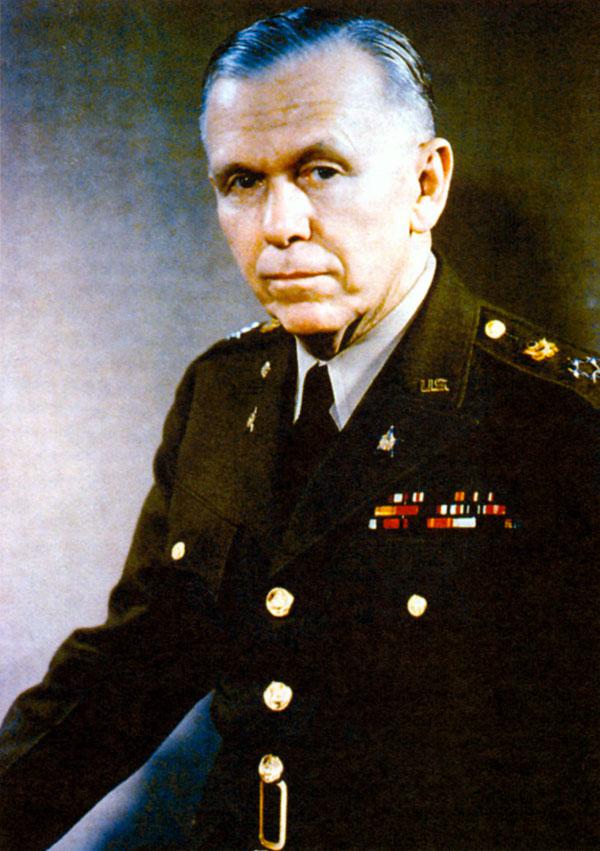
George Marshall was one of the American army generals, who during the Second World War, insisted on opening a second front. He was a member of its development. But he went down in history as the main creator of the Marshall Plan, under which European countries affected by war, 4-year loan for economic recovery. This plan is fully justified. He allowed a short time to restore France, Great Britain, Italy, and Germany was "economic miracle". The plan was proposed and the Soviet Union, but Stalin refused it. In 1953, as the initiator of the plan of revival of Europe, Marshall won the Nobel Peace Prize.
Albert Einstein (1879-1955)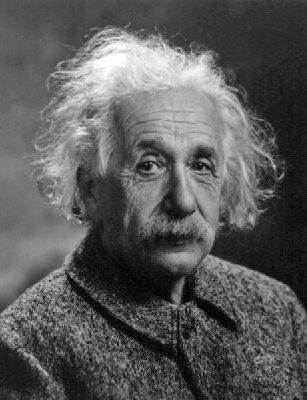
Albert Einstein - one of the founders of Theoretical Physics, Nobel laureate, public figure - produced a strange impression on his contemporaries: dressed casually loved sweaters, not combing his hair, could show the language of photography in general got up and God knows what. But behind this frivolous appearance hiding paradoxical thinker, scientist, author of over 600 articles on various topics. His theory of relativity revolutionized science. It turned out that the world is not so simple. Space-time is curved, and as a result of changing gravity, the passage of time, the sun's rays are deflected by the forward direction.
Iosif Vissarionovich Dzhugashvili (Stalin) (1878 / 79-1953)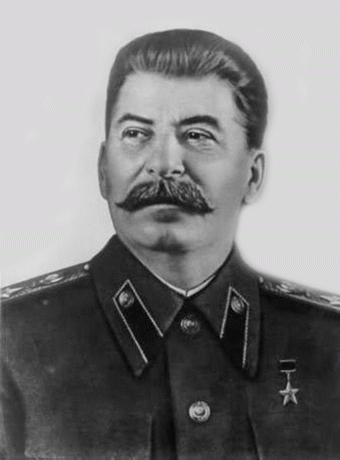
General Secretary of the All-Union Communist Party (Bolsheviks), the head of the Soviet government Joseph Stalin led the country on the path of industrial development, with his name the Soviet people defeated in World War II, he summoned a mass labor heroism, when it became a superpower country. But he planted in the country a totalitarian, dictatorial regime, held forced collectivization, with him in the country, famine, mass repression carried out, the world was divided into two camps - the socialist and capitalist. In the history of Stalin remained a dual personality: the winner in the war and tyranny of their own people.
Sir Winston Leonard Spencer Churchill (1874-1965)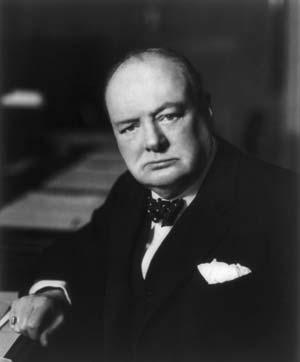
Since childhood, Winston Churchill, British statesman, prime minister and Nobel Prize for Literature in 1953, was distinguished by obstinacy and self-will. What he did not like, do not do no matter what. But if he did what he wanted, then it was admired by millions. He entered the history of the XX century as a man makes history in Britain and the peoples of Europe.
Captain Roald Amundsen (1872-1928)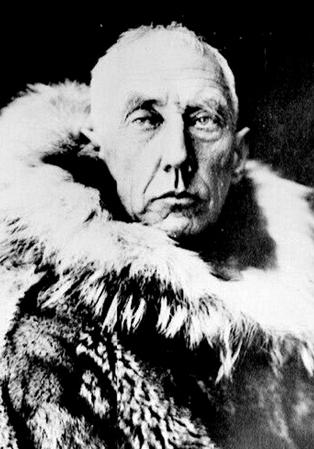
Before you begin to realize the dream of childhood - to explore the North Pole, Roald Amundsen was a few years as a sailor, went on motor sailing ships to Mexico, Britain, Spain, Africa, spent two years on an expedition to the South Pole. But it remained a dream the other side of the earth - the Arctic, which has never stepped foot of man. In the history of northern scientific expeditions he entered as a person who first visited both poles of the Earth.
Vladimir Ilyich Ulyanov (Lenin) (1870-1924)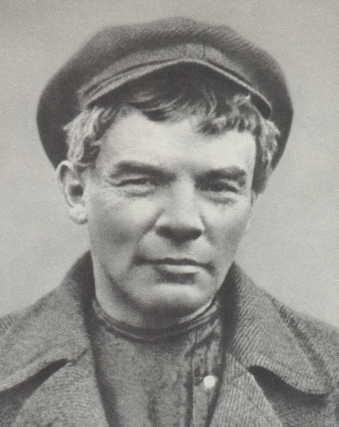
Vladimir Ilyich Lenin - the most famous politician of the XX century. For more than 70 years in the Soviet Union, he was considered unsurpassed genius has set a goal to build communism in Russia, which requires a sophisticated productive forces, the lack of division into social classes and the abolition of the State in which no money was to be implemented and the principle of "from each according to ability - to each according to his needs. " In 1920, in his speech "The Tasks of the Youth * Lenin argued that Communism will be built in 1930-1950 godah.1917, Lenin took sebya.neposilnuyu task - to make backward agrarian Russian socialist and then communist.
Saw.

Fyodor Dostoevsky (1821- 1881)

In spite of the wide popularity in Russia Fyodor Dostoyevsky, worldwide recognition and interest in his work came after his death. All noted his deep psychology, passion in the image "humiliated and insulted". The German philosopher Friedrich Nietzsche wrote that Dostoevsky was the only psychologist from whom he learned something.
Karl Marx (1818-1883)

At the end of XIX beginning of the XX century the name of Karl Marx became a symbol of the struggle for the emancipation of the working class. He developed the principles of dialectical and materialist conception of history, spoke about the need to eliminate private property, put forward the thesis of the inevitability of the collapse of capitalism and the victory of communism. His main work - "Capital" - and the theory of surplus value affected the internal political life of many countries in Europe and the world.
Nikolay Pirogov (1810-1881)

Nikolay Pirogov hours worked in the anatomical theater, cut soft tissue examined diseased organs, bones sawed, sought to replace the damaged joints. Anatomy was his practical school, which laid the foundations of his future successful surgical operation. Pirogov first proposed the idea of plastic surgery, anesthesia applied in military surgery, for the first time put a plaster cast in the field, suggested the existence of pathogens causing festering wounds. His works, various medical atlases advanced Russian surgery on one of the first places in the world.
Charles Robert Darwin (1809-1882)

The famous English explorer, naturalist, explorer Charles Darwin one of the first proposed the theory of evolution of living organisms. He claimed that all living beings have a common ancestor from which they inherit certain properties, changing in the development process. In 1859 he published the book "The Origin of Species", where many examples showed that the driving force of evolution is natural selection and variability. His ideas and discoveries in many ways served as the foundation of the modern theory of evolution, but not all recognize its fundamental.
Justus von Liebig (1803-1873)

Prominent German Professor of Organic Chemistry, Justus Liebig his whole life to explore ways of plant nutrition, address issues of rational use of fertilizers. He has done a lot to improve crop yields. Russia for help her in raising agricultural scientist awarded two Orders of St. Anne's, England made him an honorary citizen in Germany, he received the title of baron. He is credited with the creation of food concentrates. He has developed a technology to produce beef extract, which in our time is called "bouillon cube." German Chemical Society erected a monument to him in Munich.
Alexander Dumas (1802-1870)

Alexandre Dumas called writer-ready writer, for his life, he wrote 647 works on a variety of topics. He was interested in everything: history, crime, famous people, and even recipes for foreign cuisine. He tried to be in the thick of the most important events, traveled to different countries in Europe, came out with the rebels in the streets of Paris, where he was nearly killed. Returning home, he sat down at the table and wrote and wrote, forgetting everything. His adventurous novels have been translated into many languages, they formed the basis for numerous theatrical productions, feature films. Interest in his work has not died away in the XXI century.
Alexander Pushkin (1799-1837)

Time permanently removes us from Pushkin, poet, playwright, novelist, but his creative genius of this emerges more clearly. His poems, poems and stories showed different aspects of Russian reality, social life and country life, they reflected restless soul of a poet, deep feelings and emotions. His poetry and prose have been enthusiastically received by the readers of the XIX century. It was then that create an aura of his greatness, he was seen as the founder of Russian literature, the creator of modern literary language. It is no coincidence the time in which he lived, called "Pushkin era».
Simon Bolivar (1783-1830)

An example of the United States of America, freed from the domination of England in 1783, was contagious. The young Spaniard Simon Bolivar, who in 1805 visited the United States, decided to participate in the liberation from Spanish rule in South America. He led the liberation movement in New Granada - Spanish Viceroyalty in South America, which includes the territory of present-day Colombia and Panama. In 1813 he was proclaimed Liberator of Venezuela, and in 1825 he became head formed on the territory of the Republic of Upper Peru, called by its name Bolivia.
Napoleon Bonaparte (1769-1821)

Initiated in 1805 by Napoleon I aggressive war in Europe very quickly turned France into a major power on the continent. Among the west remained unconquered Albion, in the east - Russia. But the trip to the East in 1812 ended the French Emperor and his army sad. He had to flee. He suffered a defeat in the Battle of Leipzig in 1814, and was forced to surrender after the Allied troops. French hegemony in Europe was over, but the name remained in the history of Napoleon. It is called the military and state genius, his battle entered the military manuals. Napoleon's right - the "Code Napoleon" became the basis of civil standards of Western democracy.
Thomas Robert Malthus (1766-1834)

His scandalous book "An Essay on the Principle of Population" Thomas Robert Malthus, an English clergyman and scientist and economist, published anonymously in 1798. In the book, he pointed to the dangers facing mankind - overcrowding and lack of food. Top barriers to curb the growth of the population - poor harvests, wars, epidemics. These submission, oddly enough, had a positive impact on the development of biology, forced European governments to pay attention to the problems of demography.
Martin Luther King Jr. (1929-1968)

The first fighter for civil disposition of African Americans in the United States, Baptist preacher and a prominent speaker Martin Luther King urged his supporters: should resist racism, but not by force. No bloodshed! He railed against US aggression and colonial war in Vietnam. For success in the democratization of American society in 1964, Martin King was awarded the Nobel Peace Prize. He had a dream - to destroy the racial prejudice that white and black could coexist in America as equals.
Sergei Korolev (1906-1966)

Sergei Korolev was an outstanding engineer-designer, wanted to conquer space. He made an enormous contribution to the organization of production space rocketry and missile weapons in the Soviet Union. He was the first in the world launched to Earth orbit satellites, scientific stations, spaceships. Posts about this shocked the world. He wanted to explore the Universe using automatic machines and began to prepare the trip to Mars, but did not have time to implement his plan.
Deng Xiaoping (1904-1996)

Officially, Deng Xiaoping - Chinese revolutionary and politician, informally - the head of the country. From the late 1970s to the early 1990s, he proclaimed a policy of economic reform and the construction of socialism with "Chinese characteristics". When it became Celestial strong, developed country. He put forward the idea of the unification of China and Taiwan on the principle of "one country - two systems". Throughout the world, he is recognized as an outstanding Chinese reformers of XX century.
Robert Oppenheimer (1904-1967)

Destroyer of Worlds. So called himself Robert Oppenheimer - American physicist, creator of the atomic bomb, when I learned about the terrible loss of life and devastation caused by the US atomic bomb dropped over Hiroshima on August 6, 1945. He was a conscientious man, and further urged scientists in the world not to create weapons of enormous destructive power. In the history of science as he entered * the father of the atomic bomb "and as the discoverer of black holes in the universe.
Alfred Hitchcock (1899-1980)

In the history of world cinema, Alfred Hitchcock, the famous English and American film director, remained as an unsurpassed master of horror films. He created action-packed pictures with an atmosphere of anxiety, suspense, with gloomy humor. They were called thrillers or suspense. Hitchcock skillfully worked on the psyche of the audience, subjecting them. Altogether he produced 55 feature films, many of which have become classics of world cinema. He was repeatedly awarded the "Oscar" of the American Academy.
Mao Zedong (1893-1976)

The author of "Great Leap Forward", the creator of the "cultural revolution", Mao Zedong, along with the classics of Marx, Engels and Lenin considered one of the pillars of Marxist political thought. Merciless to enemies, dedication and perseverance featured one of the founders of the Communist Party of China and the creator of the People's Republic. China has spent a lot of years to overcome the negative effects of his reign, to embark on the path of civilized development.
Charles Spencer (Charlie) Chaplin (1889-1977)

Charlie Chaplin became famous in the silent film era, when he created the image of an intellectual-tramp Charlie, a shy, thieving man who dared speak out against injustice. And even when in 1927 started shooting sound films, Chaplin a decade remained true to his image remains silent. During his life, he played 80 roles and has become known worldwide as a comedian, but he was also a writer, director, producer and composer, even his own films. Chaplin was awarded numerous international prizes, but his main award - the love of the public.
Adolf Hitler (1889 - 1945)

Historians have found an explanation for the phenomenon of the impact of Hitler in 1933 to 66 million Germans, obedient, but they found no justification for his acts, which he plunged Europe into the abyss of brutal war and has brought untold suffering to the peoples. The number of crimes he committed in the name of the superiority of one nation over others, in the name of the conquest of living space is enormous. In the story he was kak immensely exalted person who has lost all sense of reality and created great distress.
Charles Edouard Jeanneret-Gris (Le Korbyuze) (1887-1965)

In Moscow, on Butcher Street, 39, in 1930, was built the original building with large glazed windows. It was intended for Centrosoyuz. It was designed by the French architect of Swiss origin Charles Le Corbusier - one of the most famous architects of the XX century. Supporter functional style, the founder of modernism, he worked in various countries, including Switzerland, France, USA, Argentina, Japan, Russia. He was the author of the so-called free-form architecture, proposes to build a no-frills, simple, sublime and with an abundance of light.
Coco Chanel (Gabrielle Bonheur real name) (1883-1971)

Coco Chanel loved black and encouraged its to clients wearing little black form-fitting dress. For black dress well suited black handbag, elegant black hat and black sunglasses. "Blackened" image was so prevalent among the fashionistas of the 1920s that this popular clothing Coco compared with US T-model Ford, which produced cars off the assembly line in black only.
Franklin Delano Roosevelt (1882-1945)

During the Great Depression in 1933 in the United States was elected the 32nd President Franklin D. Roosevelt. He promised to lead the country out of a deep crisis. In the same year the president has established diplomatic relations with the Soviet Union. Since the beginning of World War II, he supported the United Kingdom, France and the Soviet Union in the fight against Nazi Germany. He put forward the idea of creating the United Nations. He had big plans in international politics, but to fulfill them to the end he failed.
Pablo Ruiz Picasso (1881-1973)

Hispanic origin, Pablo Picasso - painter, graphic artist, sculptor and designer - his unusual work initially just hit the audience, and then had an enormous impact on the entire art world of the XX century. He was the founder of Cubism, depicting man as a number of superimposed planes. This ensures, as they say, ugly similarity. And it admires. He said that shows the world is not the way it sees, and what is. It is much more valuable, it is the highest creativity. His work is recognized as the most popular and were the most expensive in the world.
Alexander Fleming (1881-1955)

Alexander Fleming, a native of Scotland, English bacteriologist, a lifetime looking for medications that could help a person cope with infectious diseases. He first discovered that mucosal person has a special liquid, which not only prevents the penetration of bacteria but kills them. He identified this substance, it was called lysozyme. Later, he was able to mold penicillum detect substances that kill bacteria. And there was the first antibiotic - penicillin, which revolutionized medicine.
George Kegplet Marshall (1880-1959)

George Marshall was one of the American army generals, who during the Second World War, insisted on opening a second front. He was a member of its development. But he went down in history as the main creator of the Marshall Plan, under which European countries affected by war, 4-year loan for economic recovery. This plan is fully justified. He allowed a short time to restore France, Great Britain, Italy, and Germany was "economic miracle". The plan was proposed and the Soviet Union, but Stalin refused it. In 1953, as the initiator of the plan of revival of Europe, Marshall won the Nobel Peace Prize.
Albert Einstein (1879-1955)

Albert Einstein - one of the founders of Theoretical Physics, Nobel laureate, public figure - produced a strange impression on his contemporaries: dressed casually loved sweaters, not combing his hair, could show the language of photography in general got up and God knows what. But behind this frivolous appearance hiding paradoxical thinker, scientist, author of over 600 articles on various topics. His theory of relativity revolutionized science. It turned out that the world is not so simple. Space-time is curved, and as a result of changing gravity, the passage of time, the sun's rays are deflected by the forward direction.
Iosif Vissarionovich Dzhugashvili (Stalin) (1878 / 79-1953)

General Secretary of the All-Union Communist Party (Bolsheviks), the head of the Soviet government Joseph Stalin led the country on the path of industrial development, with his name the Soviet people defeated in World War II, he summoned a mass labor heroism, when it became a superpower country. But he planted in the country a totalitarian, dictatorial regime, held forced collectivization, with him in the country, famine, mass repression carried out, the world was divided into two camps - the socialist and capitalist. In the history of Stalin remained a dual personality: the winner in the war and tyranny of their own people.
Sir Winston Leonard Spencer Churchill (1874-1965)

Since childhood, Winston Churchill, British statesman, prime minister and Nobel Prize for Literature in 1953, was distinguished by obstinacy and self-will. What he did not like, do not do no matter what. But if he did what he wanted, then it was admired by millions. He entered the history of the XX century as a man makes history in Britain and the peoples of Europe.
Captain Roald Amundsen (1872-1928)

Before you begin to realize the dream of childhood - to explore the North Pole, Roald Amundsen was a few years as a sailor, went on motor sailing ships to Mexico, Britain, Spain, Africa, spent two years on an expedition to the South Pole. But it remained a dream the other side of the earth - the Arctic, which has never stepped foot of man. In the history of northern scientific expeditions he entered as a person who first visited both poles of the Earth.
Vladimir Ilyich Ulyanov (Lenin) (1870-1924)

Vladimir Ilyich Lenin - the most famous politician of the XX century. For more than 70 years in the Soviet Union, he was considered unsurpassed genius has set a goal to build communism in Russia, which requires a sophisticated productive forces, the lack of division into social classes and the abolition of the State in which no money was to be implemented and the principle of "from each according to ability - to each according to his needs. " In 1920, in his speech "The Tasks of the Youth * Lenin argued that Communism will be built in 1930-1950 godah.1917, Lenin took sebya.neposilnuyu task - to make backward agrarian Russian socialist and then communist.
Saw.



